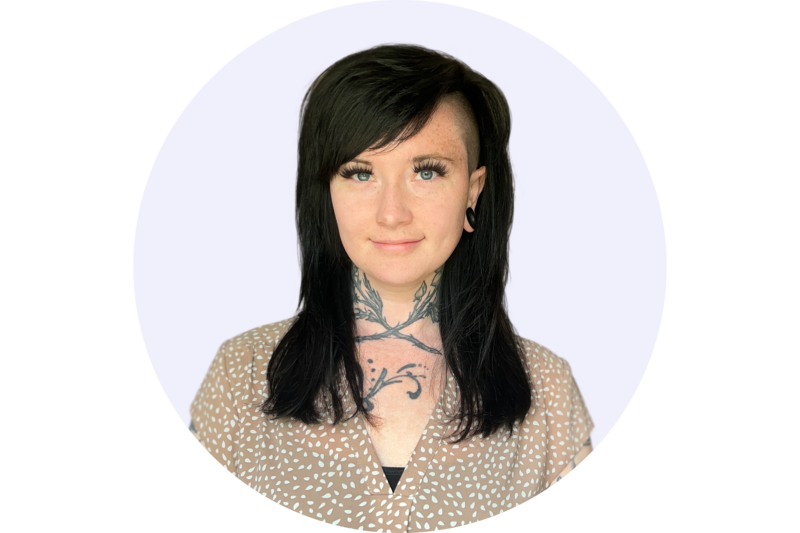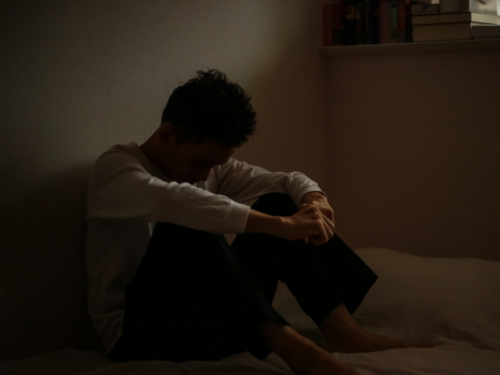
Table of Contents
A Psychiatrist Explains Marijuana Addiction Treatment

Written By: Ashley Laderer

Clinically Reviewed By: Rebecca Holland
November 15, 2024
6 min.
If you struggle with cannabis use disorder (CUD), it’s important to understand how to achieve recovery. Read on to learn about marijuana addiction treatment options.
Learn more about our Clinical Review Process
Table of Contents
Despite the belief that marijuana isn’t addictive, more than 16 million people in the US, ages 12 and older struggle with marijuana addiction, formally referred to as cannabis use disorder (CUD). Among cannabis users, it’s estimated that 21.3% meet the criteria for cannabis use disorder.
“Cannabis use disorder (CUD) is a condition characterized by problematic patterns of cannabis use that lead to significant impairment in a person’s life,” says Dr. Eli Muhrer, M.D., Charlie Health’s Medical Director. “This may include a loss of control over use, continued use despite negative consequences, cravings, and the development of tolerance or withdrawal symptoms when reducing or stopping use.”
If you struggle with marijuana addiction, treatment is crucial. Without treatment, CUD can lead to increased impairment in all aspects of life along with potential adverse mental health and physical health outcomes. Read on to learn about the available treatment options for cannabis use disorder, information on withdrawal, and more.

Therapy and medication-assisted treatment
Comprehensive, virtual care for cannabis use disorder.
Treatment options for cannabis use disorder
There are multiple treatment options for marijuana addiction to explore. For many people, a combination of different forms of treatment may be most effective, but therapy tends to play a large role in CUD recovery. According to Dr. Muhrer, two effective therapy modalities for CUD are cognitive behavioral therapy (CBT) and motivational enhancement therapy (MET). Treatment programs may incorporate a mix of these therapies.
1. Cognitive behavioral therapy
CBT is a common, effective therapy for substance use disorders. In CBT, there’s an emphasis on learning how thoughts, feelings, and behaviors impact each other. CBT can help you identify and change maladaptive (unhealthy, unhelpful) thought patterns and behaviors linked to cannabis use, Dr. Muhrer says.
This is done through cognitive restructuring, which involves identifying negative thought patterns and then challenging these thoughts. Your therapist will help you create healthier, more helpful thought patterns to promote overall well-being. You’ll also learn to create healthy behavior changes to boost your mental health. Ultimately, these changes will aid you on your recovery journey to quit marijuana use.
CBT will also address any underlying mental health conditions that may contribute to your CUD, like anxiety or depression.
2. Motivational enhancement therapy (MET)
MET takes a different approach to recovery. Rather than addressing negative ways of thinking, it uses motivation as a tool to heal. It incorporates aspects of motivational interviewing, another therapy popular for treating substance use disorders.
Ultimately, MET focuses on enhancing your motivation and setting goals to quit cannabis, Dr. Muhrer says. A key part of this is exploring your ambivalence, which refers to having conflicting feelings surrounding recovery at the same time –– knowing you should quit and having some desire to quit while also not wanting to change. Your MET therapist will help you resolve this ambivalence and find more motivation to quit. You’ll collaborate to set goals to stop marijuana use and create plans to meet them.
3. Contingency management
Contingency management is a form of behavioral therapy proven to be effective for substance use disorder treatment. With this approach, positive reinforcement is the driving force. For example, there may be small rewards to encourage abstinence, Dr. Muhrer says. This serves as motivation to stay away from the substance of choice –– in this case, cannabis.
Typically, there will be some form of drug testing to ensure that you are, in fact, abstaining from marijuana use in order to receive the reward. Rewards may grow greater over time the longer you abstain from drug use.

Understanding Cannabis Use Disorder: Symptoms & Treatment
Charlie Health Editorial Team
4. Group therapy
There are different types of group therapy available for substance use disorders, including cannabis use disorder. Group therapy is an opportunity to learn about CUD and how to manage it alongside others in your shoes.
One example is group psychoeducation, in which a therapist or facilitator will provide information about CUD and its consequences if you don’t stop using. Skill development groups are also common. This type of group therapy is geared towards learning actionable coping skills to use to improve your overall mental health, deal with stressors and difficult emotions without using cannabis, and prevent relapse.
5. 12-step programs or other sober support networks
12-step programs or alternative recovery programs can also play a big role in recovery. “Programs like Marijuana Anonymous, modeled after AA or other peer-support groups offer community and accountability,” Dr. Muhrer says.
Some examples of other sober support groups include:
- Refuge Recovery
- Yoga of 12-step recovery (Y12SR)
- SMART Recovery
How to address withdrawal symptoms
As with recovery from any addiction, it’s important to consider withdrawal before you stop using the drug to come up with a plan. “Withdrawal symptoms are common, particularly in individuals who have used cannabis heavily or over a prolonged period,” Dr. Muhrer says. “While it can cause significant distress in a person’s life, it is not medically dangerous like withdrawal from alcohol is.”
You don’t necessarily have to go to a rehab or withdrawal facility to detox from marijuana, but if you work with a professional specializing in substance abuse, they might help you come up with a plan to minimize withdrawal symptoms, such as weaning off your cannabis use rather than stopping cold turkey. According to Dr. Muhrer, symptoms of marijuana withdrawal are:
- Headaches
- Sweating
- Chills
- Decreased appetite
- Irritability
- Anxiety
- Restlessness
- Depressed mood
- Insomnia
- Vivid, disturbing dreams
“These symptoms are usually mild to moderate but can cause significant discomfort, which may lead to relapse if not managed,” he adds.
One way to manage cannabis withdrawal symptoms at the beginning of recovery is to take medication. While there are no medications specifically designed or approved for this use, Gabapentin can help with anxiety and sleep disturbances during withdrawal, Dr. Muhrer says.
Some research points toward other medications, such as Varenicline (a prescription for people quitting cigarettes), helping with marijuana withdrawal, but ultimately, more research is needed.
Medications for marijuana addiction treatment
“There are no FDA-approved medications specifically for CUD, but some off-label options can address withdrawal symptoms or comorbid conditions,” Dr. Muhrer says. “Research into pharmacological treatments for CUD is ongoing.”
For example, it’s common for marijuana abuse and addiction to co-occur with depression or anxiety. In these cases, Dr. Muhrer says a doctor may prescribe antidepressants or anti-anxiety medications. A non-prescription option is a supplement called N-acetylcysteine (NAC). This supplement may help reduce cravings, Dr. Muhrer adds. Again, more research is needed to determine what medications could be effective for marijuana addiction treatment.
The importance of addressing underlying mental health conditions
It’s very common for people to have co-occurring substance use disorder and a mental health disorder. Around one in four people with a serious mental health condition also engage in substance abuse. When it comes to cannabis use disorder in particular, it’s estimated almost 50% of people with CUD also have a mental health condition.
In general, examples of conditions that commonly co-occur with SUD are:
- Anxiety disorders
- Post-traumatic stress disorder
- Depression
- Bipolar disorder
- Personality disorders
- Schizophrenia/psychosis
- Attention-deficit hyperactivity disorder (ADHD)
It is extremely important not just to treat cannabis addiction but also to treat the underlying causes and comorbid conditions. “These conditions can act as triggers for cannabis use and can make efforts to reduce or stop use if left untreated,” Dr. Muhrer says. “Addressing these underlying issues through therapy and/or medication improves the chance of sustained sobriety and reduces the risk of relapse.”

How Charlie Health can help
If you or a loved one struggles with cannabis use disorder, Charlie Health is here to help. Charlie Health’s virtual Intensive Outpatient Program (IOP) provides more than once-weekly mental health treatment for people with complex mental health conditions, including substance use disorders and co-occurring mental health conditions.
Our compassionate clinicians meet you where you are on your marijuana addiction recovery journey and create personalized treatment plans to help you heal. They will investigate the underlying causes of your addiction, provide empathetic support, and teach you effective coping skills to prevent relapse. We incorporate evidence-based therapies into individual counseling, family therapy, and group sessions to promote lasting recovery. With this kind of holistic treatment, recovery from cannabis use disorder is possible. Fill out the form below or give us a call to start healing today.
References
https://my.clevelandclinic.org/health/diseases/cannabis-use-disorder
https://pmc.ncbi.nlm.nih.gov/articles/PMC10466162/
https://pmc.ncbi.nlm.nih.gov/articles/PMC2897895/
https://pmc.ncbi.nlm.nih.gov/articles/PMC4963310/
https://pmc.ncbi.nlm.nih.gov/articles/PMC3083448/
https://www.ncbi.nlm.nih.gov/books/NBK64214/
https://www.psychiatrictimes.com/view/current-treatments-for-cannabis-use-disorder
https://www.samhsa.gov/mental-health/mental-health-substance-use-co-occurring-disorders
https://www.umaryland.edu/news/archived-news/december-2023/cannabis-linked-psychiatric-disorders-on-the-rise.php
https://www.nimh.nih.gov/health/topics/substance-use-and-mental-health




